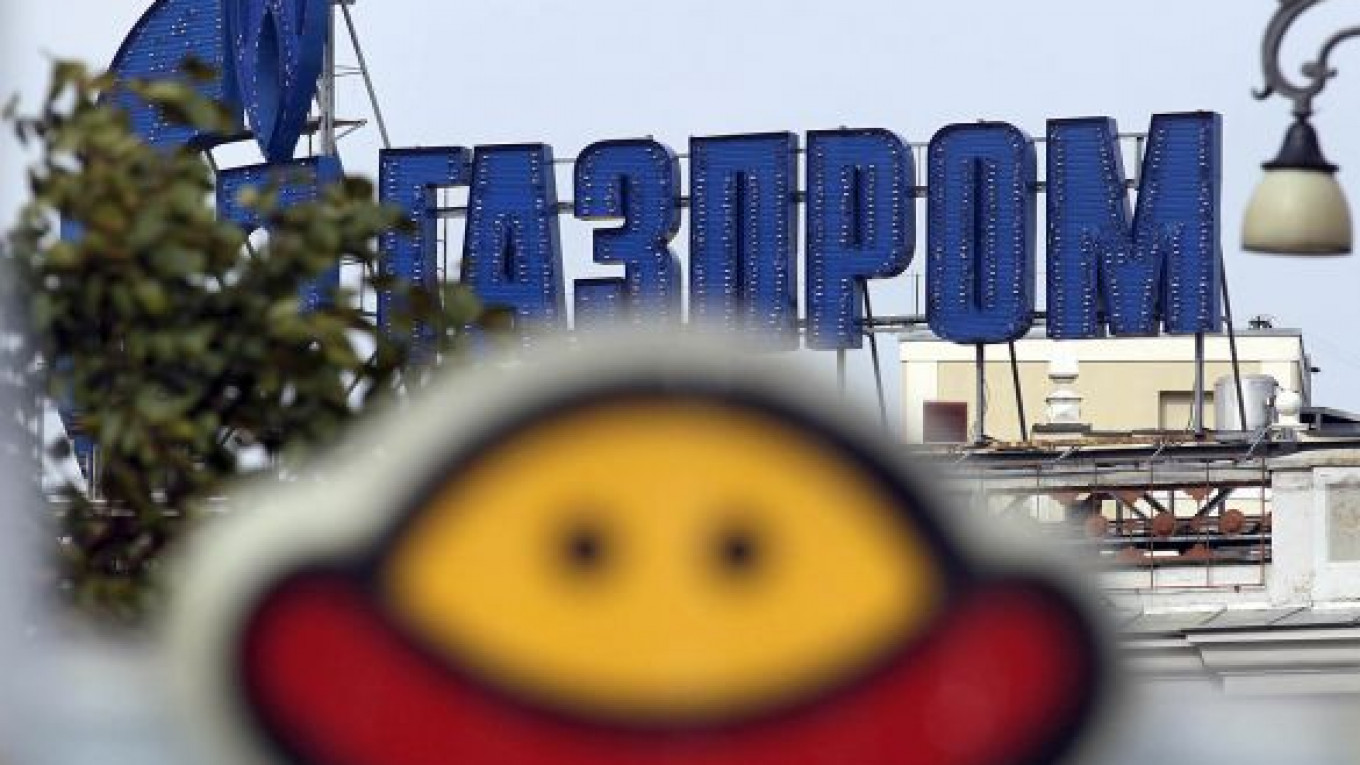The Kremlin raised the stakes in a standoff between Gazprom and EU antitrust authorities on Tuesday, making it illegal for Gazprom to trade with or divulge information to foreign entities without first receiving permission from the government.
The decree, signed by President Vladimir Putin, requires all companies deemed "strategic" by the state to seek "prior permission from federal authorities" before providing information about their activities, changing contracts or selling property abroad.
The decree, titled "Measures to Protect the Interests of the Russian Federation in Foreign Economic Activities Conducted by Russian Legal Entities," means Gazprom will have to seek permission before changing the prices it charges foreign customers. The government may refuse such permission "if these activities are capable of damaging the economic interests of the Russian Federation."
The decree says the government will name the agencies responsible for granting or denying such permission within a month.
The order, which came into force as soon as it was published on the Kremlin's website on Tuesday afternoon, appears to pose a direct challenge to a European Commission investigation into Gazprom's pricing structure for natural gas by effectively elevating corporate relations to the political level.
Shortly after the decree was signed, Gazprom accused the European Commission of trying to force it to "subsidize" Eastern and Central European economies.
"A number of relatively weak economies in the European Union are continuing to demand that Gazprom make unilateral concessions on gas prices," Gazprom spokesman Sergei Kupriyanov told reporters at a hastily called news conference Tuesday afternoon.
"That can only be regarded as support by the European Commission to subsidize Eastern European countries at Gazprom's expense. This is an attempt to solve the EU's economic problems at Russia's expense," he said.
Kupriyanov confirmed the company would refuse to change its pricing policy without government permission, in accordance with the decree, adding that Gazprom hopes the European Commission will return to a "constructive dialogue."
In another warning to Europe,
Kupriyanov also announced that Gazprom will revise its long-term strategy of supplying pipeline gas to Europe and turn instead to Asia.
He also said the company could soon speed up development of gas fields in Russia's Far East, which would increase the potential resource base for Asian exports. He singled out Japan as a particularly attractive market for the firm's gas.
The European Commission last week opened an investigation into allegations that Gazprom has divided markets to hinder the free flow of gas between member states, hindered diversification, and acted unfairly by continuing to bill its customers for natural gas according to a formula based on oil prices.
The decision followed long-running disputes that saw commission officials raid the offices of several Gazprom subsidiaries and customers across Europe in September 2011.
Europe relies on Russia for about a quarter of its gas consumption. Eastern and Central Europe, not counting Ukraine, consume 25 percent of Gazprom's exports to Europe.
Gazprom has argued that the investigation is outside the commission's jurisdiction and pointed out that the company has "public functions" under Russian law. Putin's spokesman Dmitry Peskov has insisted that Gazprom "was, is and will be a reliable supplier of natural gas to its customers."
Putin, who made no public comment about Tuesday's decree, dismissed talk of a trade war with Europe when asked about the investigation over the weekend.
"We have very warm, constructive relations. It is not a trade war," Putin told reporters after an Asia-Pacific Economic Cooperation summit in Vladivostok, Reuters reported.
Gazprom has a monopoly on natural gas exports under Russian law, but independent producers, led by Novatek, have recently sought to break into such markets.
The list of "strategic enterprises and organizations" considered of special interest to the state was established by a presidential decree in 2004. It includes outfits ranging from oil and gas majors like Gazprom and Rosneft to aviation research institutes and agricultural companies.
Any foreign investors seeking to buy a stake in a strategic company have to be approved by a special commission.
Related articles:
A Message from The Moscow Times:
Dear readers,
We are facing unprecedented challenges. Russia's Prosecutor General's Office has designated The Moscow Times as an "undesirable" organization, criminalizing our work and putting our staff at risk of prosecution. This follows our earlier unjust labeling as a "foreign agent."
These actions are direct attempts to silence independent journalism in Russia. The authorities claim our work "discredits the decisions of the Russian leadership." We see things differently: we strive to provide accurate, unbiased reporting on Russia.
We, the journalists of The Moscow Times, refuse to be silenced. But to continue our work, we need your help.
Your support, no matter how small, makes a world of difference. If you can, please support us monthly starting from just $2. It's quick to set up, and every contribution makes a significant impact.
By supporting The Moscow Times, you're defending open, independent journalism in the face of repression. Thank you for standing with us.
Remind me later.






